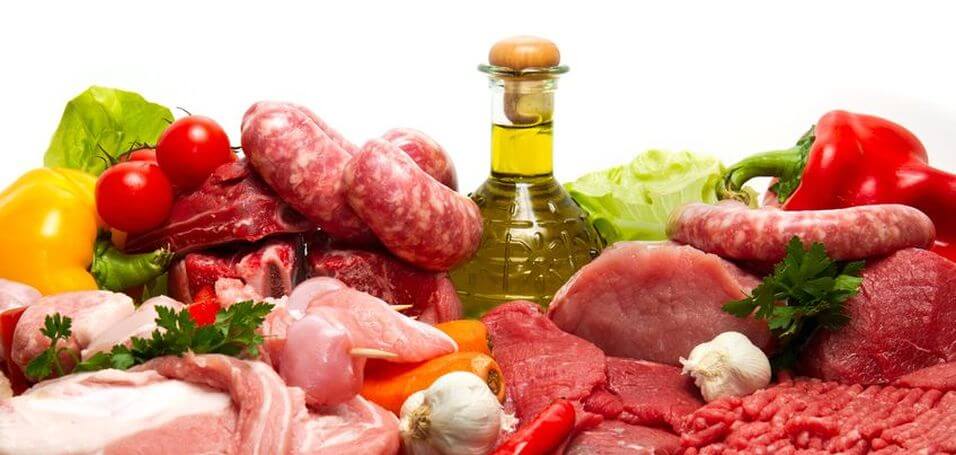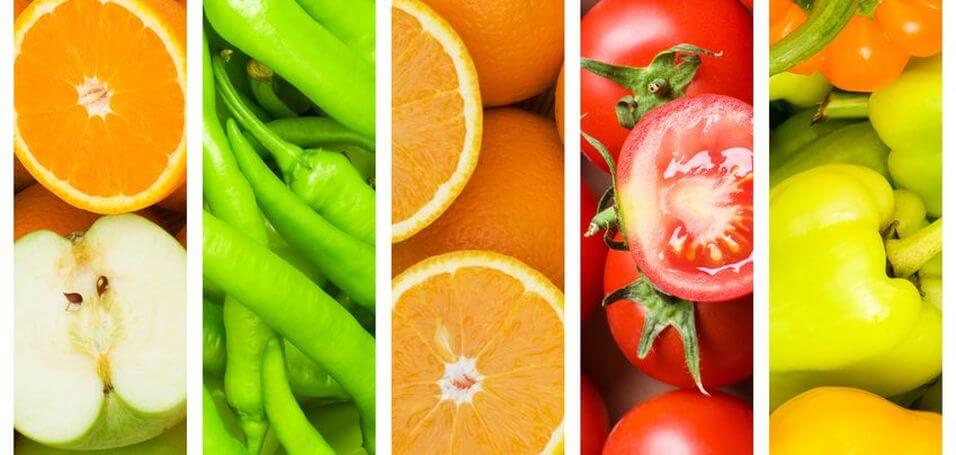Take a minute and ponder the following question:
What three things would most make this year great?
That is, what are the three biggest things that you could make happen this year to make it truly special?
Do you want to lose that weight, or maybe even build your best body ever?
Graduate cum laude, or maybe even summa cum laude?
Get that job, or maybe even double your income?
Find that special someone, or maybe even hear him/her say “I do”?
Well, whatever your short list of “highly desirables,” here’s something you should know:
The physically healthier and fitter you are, the easier they will be to achieve.
And, as a corollary, the unhealthier and more unfit you are, the more you’re going to struggle with this year’s goals.
In other words, your physiology is going to be working for or against you, helping carry you forward, or dragging you down.
When it’s on your side, you can focus all of your attention and energy on the journey ahead, and travel with speed and spirit. When it’s in the way, though, it sucks the life out of you, slows you down, and makes even the smallest tasks look Sisyphean.
That’s why number one on your to-do list for this year should be getting into great health and shape.
You’re going to look better, think better, and feel better than ever before, and that’s going to help you become all that you can be.
And that’s what this article is going to be all about.
In it, you’re going to learn the ten best ways to optimize your health and fitness. They’re simple, powerful, and even transformative, and they deliver results fast.
Ready?
Let’s get to it.
- 1. Do at least 2 to 3 resistance training workouts per week.
- 2. Don't do too much cardio.
- 3. Don't starve yourself.
- 4. Eat a high-protein diet.
- You build more muscle and get stronger on a high-protein diet.
- You lose more fat and less muscle on a high-protein diet.
- You feel fuller on a high-protein diet.
- 5. Eat at least 2 to 3 servings of both fruit and vegetables per day.
- 6. Get enough sleep.
- 7. Take the right supplements.
- 8. Improve your flexibility and mobility.
- 9. Reach and maintain a healthy body weight.
- 10. Stop drinking calories.
- Is there anything that you think should be added to this list? Have anything else to share? Let me know in the comments below!
Table of Contents
1. Do at least 2 to 3 resistance training workouts per week.

No other type of exercise benefits your body composition and metabolism like resistance training.
- It builds muscle.
- It burns fat.
- It speeds up your basal metabolic rate.
- It improves your hormone profile.
- It improves your mental health.
- It makes you more resistant to sickness and disease.
- It reverses aspects of aging at the gene level.
Quite simply, resistance training is the simplest way to not only transform your physique, but to enhance just about every element of your body and mind, as well.
Even better, you don’t have to live in the gym to reap all these benefits. Just a few well-designed workouts per week is enough.
Want to learn how to get the most out of your resistance training workouts? Check out this article.
2. Don’t do too much cardio.
Cardio is overrated.
First, it’s not all that great for losing weight, because it doesn’t burn as many calories as many people think, and it’s too easy to eat the calories that it does burn.
Second, the more cardio you do, the harder it is to gain muscle, and if taken too far, the more likely you are to actually lose muscle.
This is more important than many people realize, because while they say they want to lose weight, what they should be saying is they want to lose fat and not muscle.
That is, your goal should never be to merely reduce the number on scale, because you can accomplish this by losing both fat and muscle, and wind up skinny fat.
Instead, you want to think in terms of reducing your body fat percentage while preserving or even gaining muscle (improving your body composition).
This, ultimately, is how you build a lean, muscular, and attractive physique, and this requires focusing more on resistance training and less on cardio.
Want to learn more about how much cardio you should do and what types are best? Check out this article.


3. Don’t starve yourself.
There’s a lot wrong with “starvation dieting,” ranging from muscle loss to metabolic slowdown, depression, hormonal imbalances, and more.
What qualifies as a true starvation diet, though?
Is it simply one that leaves you feeling “starved” throughout the day?
Not necessarily. Some people are more physiologically and psychologically inclined to struggle with hunger and cravings, even when calories are only mildly restricted.
Is it one that has you eating fewer calories per day than some arbitrary number?
No.
Many people (women, mainly) are told that they should never dip below a certain caloric intake to lose fat, regardless of the diet’s macronutritional profile or their current body weight and composition.
Most of this advice is wrongheaded, mainly because people often need to eat quite a bit less every day than they think (and want) to lose fat effectively.
This is especially true for women that are used to hearing how much men should eat, because their numbers look pitifully low in comparison. What they’re missing is they can’t eat nearly as much because their bodies are, generally, much smaller and less muscular, which means which means they burn quite a bit less energy.
For example, your average 150-pound woman’s basal metabolic rate is around 1,400 calories per day, whereas your average 200-pound man’s is closer to 2,000. Thus, the average guy can eat at least 500 to 600 more calories per day when losing weight than the average girl can.
What is a starvation diet, then?
Well, it’s a diet that has you eating significantly less than your basal metabolic rate for an extended period of time.
The longer you do this, the more likely you are to experience the negative side effects listed above, and that’s why I recommend that you use an aggressive, but not reckless, caloric deficit when dieting to lose weight.
Want to know how to figure out how many calories you should eat every day? Check out this article.
4. Eat a high-protein diet.

Scores of studies have conclusively proven that a high-protein diet beats a low-protein one in just about every way that matters, and this is especially true for us fitness folk.
Here are the highlights:
You build more muscle and get stronger on a high-protein diet.
Muscle tissue is primarily composed of protein, so it shouldn’t be a surprise that a high-protein diet helps you build it faster. And with more muscle comes more strength.
You see, when you train your muscles, you’re simultaneously damaging and breaking down muscle tissue and beginning a process known as “protein synthesis” whereby the body creates (synthesizes) new muscle proteins to replace and add to the damaged tissues.
This is why exercise, and resistance training in particular, increases the protein needs of the body, and why a high-protein diet helps you build more muscle and strength.
You lose more fat and less muscle on a high-protein diet.
Research clearly shows that a high-protein diet is better for both losing fat faster and preserving muscle than a low-protein one.
Furthermore, studies also show that a high-protein diet results in less mood disturbance, stress, fatigue, and diet dissatisfaction, and this helps greatly with dietary compliance.
Remember: in many ways, the best diet is one that you can stick to. A high-protein diet is a lot easier to follow than a low-protein one, which is one of the reasons it works so well.
You feel fuller on a high-protein diet.
One of the biggest dietary obstacles people run into is plain old hunger.
It can be incredibly hard to regulate food intake when your stomach feels like a grumbling Sarlacc Pit, and a high-protein diet can help.
Specifically, research shows that increasing protein intake decreases appetite through several mechanisms, including favorably altering hormones related to hunger and fullness.
This satiating effect not only applies to a high-protein diet in general, but to individual meals as well. Studies show that high-protein meals are more filling than high-fat ones, making you less likely to overeat.
All this is why I recommend eating between 0.8 and 1 gram of protein per pound of body weight per day, and for those that are very overweight, 1 gram per pound of fat-free mass per day.
Want to learn more about how much protein you should eat and why? Check out this article.
5. Eat at least 2 to 3 servings of both fruit and vegetables per day.

Research clearly shows that people who eat higher amounts of fruits and vegetables are more likely to live longer, disease-free lives than those who don’t eat enough.
Unfortunately, however, few people eat enough of these plant foods, and fewer still know how much they’re supposed to eat and why.
(The government recommends that adults eat about 3 cups of vegetables and 2 cups of fruit per day.)
One of the reasons that fruit and vegetable intake is so important is they’re the primary source of many of the micronutrients our bodies need to stay alive and healthy.
Another lesser-known reason is plant foods also contain other types of natural chemicals that aren’t essential to life, but help your body perform better and ward off disease (phytonutrients).
Two good examples of phytonutrients are the chemicals sulforaphane and anthocyanins, which are found in large amounts in broccoli and blueberries, respectively.
These molecules confer a variety of health benefits but aren’t listed on food labels, so many people aren’t even aware of their existence.
It’s “nonvital” nutrients like these that explain why even a well-formulated multivitamin can’t take the place of a vegetable-rich diet. The multivitamin can provide the essential vitamins and minerals, but not the wide spectrum of additional phytonutrients provided by foods.
So, if your fruit and vegetable intake is wanting, getting it up to snuff is the easiest thing you can do to improve your mental and physical health and well-being.
That doesn’t mean you have to force down bland, boring food every day, either. Here are a bunch of recipes that help make it enjoyable:
- 20 Vegetable Smoothies That You’ll Actually Want to Drink
- 20 Hidden Veggie Recipes That Make “Clean Eating” Amazing
- 10 Vegetable Salad Recipes to Eat (and Love) This Summer
- 20 Healthy Sweet Snacks That Will Keep You Energized
- 20 Easy Vegetarian Recipes So Good You Won’t Miss the Meat
Want to learn more about what a “healthy” diet really is? Check out this article.
6. Get enough sleep.
In 2014, the Center for Disease Control declared that insufficient sleep is a public health epidemic.
According to polling conducted by the National Sleep Foundation, 43% of Americans between the ages of 13 and 64 say they rarely or never get a good night’s sleep on weeknights. 60% say that they experience a sleep problem every night or almost every night.
The most common troubles are having trouble falling asleep, snoring, waking in the night, waking too early, and not feeling refreshed in the morning.
Most people don’t realize how negatively this can impact their mental and physical health.
Sleep insufficiency has been linked to auto crashes, industrial disasters, and medical and other occupational errors. It also increases the mortality and the risk of chronic diseases like hypertension, diabetes, depression, obesity, and cancer, and it reduces quality of life and productivity.
Studies show that inadequate sleep can even slow weight loss, lead to weight gain and muscle loss, and reduce testosterone levels.
The bottom line is that your sleep hygiene is like your diet—it’s either working for you or against you, regardless of whether you realize it.
Sleep needs vary from individual to individual, but according to the National Sleep Foundation, adults need 7 to 9 hours of sleep per night to avoid the negative effects of sleep deprivation.
Want to know how to get the best sleep of your life? Check out this article.
7. Take the right supplements.

Here’s a simple truth that many supplement companies don’t want you to know:
Supplements don’t build great physiques. Dedication to proper training and nutrition does.
Unfortunately, the supplement industry is plagued by pseudoscience, ridiculous hype, misleading advertising and endorsements, and many other shenanigans.
For example…
- GNC, Target, Walgreens and Walmart have been happily selling you “herbals” comprised of powdered rice, asparagus, and houseplants.
- Driven Sports was secretly giving people a taste of the ultimate pre-workout stimulant: meth. (And the CEO of this racket was previously busted for selling illegal steroids and weight loss drugs.)
- USPlabs’ fat loss product OxyElite Pro was causing liver failure, and their pre-workout supplement Jack3d contained a dangerous stimulant called DMAA. Oh and their CEO was also kinda into steroids.
The reality is most supplement companies produce cheap, junk products, and then try to dazzle you with ridiculous marketing claims, high-profile (and very expensive) endorsements, pseudo-scientific babble, fancy-sounding proprietary blends, and flashy packaging.
That said, there are safe, natural substances that have been scientifically proven to deliver benefits such as increased strength, muscle endurance and growth, fat loss, and more.
As a part of my work, it’s been my job to know what these substances are, and find products with them that I can use myself and recommend to others. Finding high-quality, effective, and fairly priced products has always been a struggle, though.
That’s why I took matters into my own hands and decided to create my own line of 100% natural, science-based supplements. These are, in short, the formulations that I myself have always wanted and wished that others would create.
I won’t go into a whole spiel here, but if you want to learn more about what I’m doing, check this out.
8. Improve your flexibility and mobility.
If you want to gain muscle and strength as quickly as possible, then you want to be able to perform several high-value exercises correctly.
Namely, the squat, deadlift, bench press, and military press.
These four compound exercises train every major muscle group in your body, and they lend themselves particularly well to progressive overload, which is the primary driver of muscle growth.
They’re also easier said than done, because they’re fairly technical exercises (the finer points of form really matter), and they require a fair amount of flexibility and mobility.
That’s why spending time on improving your ability to move your body and limbs through full ranges of motion can pay huge dividends in your training.
The better your movement patterns are, the better you’ll be able to perform in your workouts, and the better your results will ultimately be.
A little bit of flexibility and mobility work goes a long way, too. Just 30 minutes or so per week is enough to reap considerable benefits.
Want to learn more about mobility exercises? Check out this article.
9. Reach and maintain a healthy body weight.

If you want to not just look and feel great, but also ward off disease or dysfunction, then you want to…
- Eat plenty of nutritious foods.
- Exercise regularly.
- Get enough sleep.
- Not smoke.
- Limit your alcohol intake.
And last but not least…
Few people would argue with the first five points, but many would take umbrage with this final one, not because they have facts to refute it, but because it hurts their feelings.
Well, science doesn’t care about feelings, and the evidence is abundantly clear: being overweight is unhealthy, and being obese is even more so.
The heavier you are, the more likely you are to develop all kinds of chronic disease, including cardiovascular disease, type 2 diabetes, several types of cancer, gallbladder disease, gout, osteoarthritis, and several other conditions.
These realities may offend the delicate sensibilities of politically correct groupthinkers, but that doesn’t make them any less accurate.
Just because someone wants to believe that they can be “healthy at any size” doesn’t make it true, and “but muh feelings” isn’t an argument.
Now, while keeping an eye on your weight is a good start, if you want to maximize health and longevity, then you also want to pay attention to your body composition (how your weight breaks down into muscle and non-muscle tissues).
First, there’s your body fat percentage, which is the percentage of your weight comprised of fat.
If you keep this in a healthy range (10 to 20% in men, and 20 to 30% in women), then you don’t have to even pay attention to your body weight. It more or less takes care of itself.
Second, there’s your lean body mass, which is the amount of your weight comprised of muscle.
Research shows that the more muscularly fit you are, the less likely you are to develop chronic disease and die, which is one of the many reasons why resistance training is one of the best things you can do for your body.
Want to learn more about measuring and improving your body composition? Check out this article.
10. Stop drinking calories.
If you love to drink caloric beverages, ranging from soda to sports and energy drinks to fruit juices, you’re probably always going to struggle with your weight.
The major problem with these drinks is they don’t trigger satiety like food.
You can drink 1,000 calories and be hungry an hour later, whereas eating 1,000 calories of food, including a good portion of protein and fiber, will probably keep you full for 5 to 6 hours.
Here’s how scientists at Purdue University put it:
“Based on the appetitive findings, consumption of an energy-yielding beverage either with a meal or as a snack poses a greater risk for promoting positive energy than macronutrient-matched semisolid or solid foods consumed at these times.”
In other words, people that drink calories are much more likely to overeat than those that don’t.
This is why research shows a clear association between greater intakes of sugar-sweetened beverages and weight gain, and is one of several reasons to drink water instead.
Want to know more about how much water you should drink and why? Check out this article.









